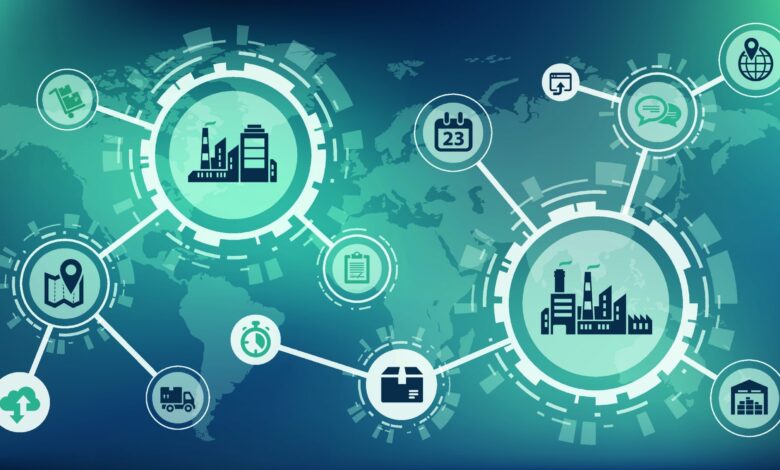Reducing Waste in Supply Chains: Techniques and Strategies

Supply chains are the backbone of our modern, global economy. They allow businesses to move goods efficiently from one part of the world to another. However, with this efficiency often comes waste. This waste not only impacts the bottom line but also has environmental consequences. This post will discuss various techniques and strategies to minimize waste at each step of the supply chain, with a special focus on the importance of freight forwarding solutions.
Moreover, as consumers become increasingly conscious of the environmental and ethical implications of their purchases, businesses are compelled to scrutinize their supply chains more than ever before. Consumers are looking for brands that prioritize sustainable and waste-free operations. As a result, a streamlined and efficient supply chain is not just an internal operational advantage but also an external marketing advantage. By reducing waste in the supply chain, companies can not only meet their own cost-saving objectives but also cater to the growing demand for eco-conscious products and services. It underscores the notion that business efficiency and environmental responsibility are not mutually exclusive but can, in fact, go hand-in-hand.
Why Minimize Waste in Supply Chains?
Before diving into the solutions, it’s crucial to understand why reducing waste is essential. Waste can take on many forms, from excess inventory to inefficient transportation methods. By cutting down on waste, companies can:
- Save money
- Improve environmental footprints
- Optimize resource use
- Enhance overall supply chain efficiency
The Role of Freight Forwarding Solutions
One of the most impactful areas where waste can be minimized is freight forwarding. Traditionally, this process involved a lot of paperwork, manual tracking, and a high risk of errors. Modern freight forwarding solutions, like freight forwarding software and systems, have changed this narrative.
Freight Forwarding Software: With the use of advanced freight forwarder software, companies can seamlessly plan, book, and track shipments. It reduces the need for paper, cuts down on errors, and ensures a smoother shipping process.
Freight forwarding systems streamline the entire freight process. By integrating multiple steps, like booking, tracking, and documentation, into one platform, businesses can reduce redundancies and improve efficiency.
Key Strategies to Minimize Waste
While freight forwarding solutions play a pivotal role, there are several other strategies to consider:
a) Inventory Management: Properly managing inventory ensures that you have the right amount of stock at the right time. This reduces the chances of overproduction or stockouts.
b) Lean Manufacturing: Adopting lean principles can help in reducing excess waste in the manufacturing process, allowing for more streamlined operations.
c) Supplier Relationships: Building strong relationships with suppliers means that you can collaborate to reduce waste, improve product quality, and ensure timely deliveries.
Embracing Modern Freight Forwarding Platforms
Companies today are spoiled for choice when it comes to picking a freight forwarding solution. A robust freight forwarding platform goes beyond just shipment tracking. It offers features like:
Real-time visibility: Know where your shipments are at any given moment.
Data analytics: Understand shipment trends and areas of improvement.
Automation: Reduce manual tasks and the chance for errors.
Integration: Seamlessly connect with other supply chain systems for a unified experience.
For businesses involved in international shipping, ocean freight software can be particularly beneficial. Such specialized software can manage the unique challenges posed by sea transport, ensuring goods move smoothly across oceans.
Continuous Improvement and Monitoring
It’s not enough to implement strategies and then forget about them. The world of supply chain is continuously evolving, and so are the techniques to minimize waste. Regularly review your operations, make use of analytics provided by freight forwarding software, and always be on the lookout for areas of improvement.
Future of Waste Reduction in Supply Chains
As technology advances, we can expect even more sophisticated tools to emerge. Artificial intelligence, for example, might predict shipment delays, allowing businesses to make proactive decisions. Or blockchain could further ensure transparency and security in the supply chain.
Regardless of the technologies that come to the forefront, the core principle will remain the same: optimize operations, reduce waste, and aim for efficiency.
Supply chains are intricate networks that, when not optimized, can lead to significant waste. However, by implementing strategies like efficient inventory management, lean manufacturing, and especially by embracing modern freight forwarding solutions, businesses can significantly reduce this waste. In the end, a lean supply chain is not just good for the environment and the bottom line, but it’s also a key differentiator in today’s competitive marketplace.
By investing in tools like robust freight forwarding software or ocean freight software, companies can ensure they’re at the forefront of supply chain efficiency, ready to meet the demands of the modern world.
Logitude World provides freight forwarders with advanced freight forwarding software to manage all operations on one digital platform and deliver superior freight forwarding services.





